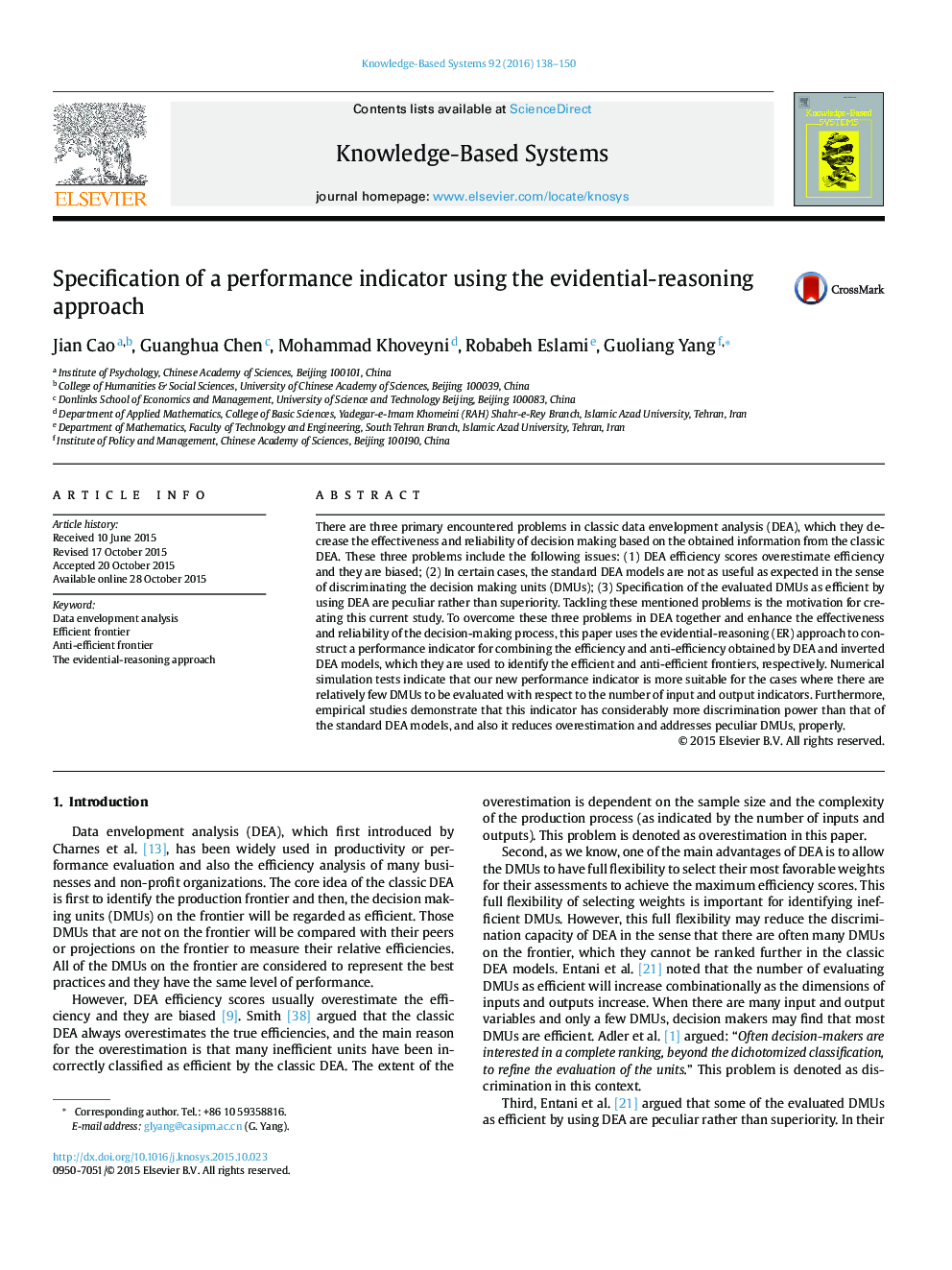| Article ID | Journal | Published Year | Pages | File Type |
|---|---|---|---|---|
| 402768 | Knowledge-Based Systems | 2016 | 13 Pages |
•There are three main problems in DEA concluding overestimation, discrimination, and the handling the peculiar DMUs.•The evidential-reasoning approach is used to construct a performance indicator.•The constructed performance indicator is employed to combine the information from classic and inverted DEA.•The proposed approach can overcome the three mentioned problems.•Numerical simulation and empirical studies are conducted to present the findings.
There are three primary encountered problems in classic data envelopment analysis (DEA), which they decrease the effectiveness and reliability of decision making based on the obtained information from the classic DEA. These three problems include the following issues: (1) DEA efficiency scores overestimate efficiency and they are biased; (2) In certain cases, the standard DEA models are not as useful as expected in the sense of discriminating the decision making units (DMUs); (3) Specification of the evaluated DMUs as efficient by using DEA are peculiar rather than superiority. Tackling these mentioned problems is the motivation for creating this current study. To overcome these three problems in DEA together and enhance the effectiveness and reliability of the decision-making process, this paper uses the evidential-reasoning (ER) approach to construct a performance indicator for combining the efficiency and anti-efficiency obtained by DEA and inverted DEA models, which they are used to identify the efficient and anti-efficient frontiers, respectively. Numerical simulation tests indicate that our new performance indicator is more suitable for the cases where there are relatively few DMUs to be evaluated with respect to the number of input and output indicators. Furthermore, empirical studies demonstrate that this indicator has considerably more discrimination power than that of the standard DEA models, and also it reduces overestimation and addresses peculiar DMUs, properly.
